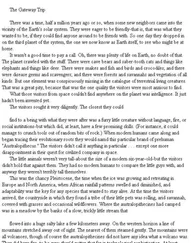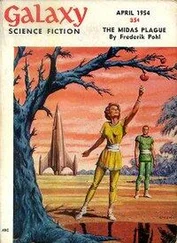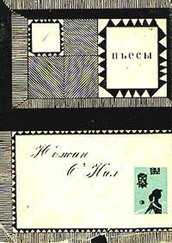Pohl, Frederik - Beyond the Blue Event Horizon
Здесь есть возможность читать онлайн «Pohl, Frederik - Beyond the Blue Event Horizon» весь текст электронной книги совершенно бесплатно (целиком полную версию без сокращений). В некоторых случаях можно слушать аудио, скачать через торрент в формате fb2 и присутствует краткое содержание. Жанр: Старинная литература, на английском языке. Описание произведения, (предисловие) а так же отзывы посетителей доступны на портале библиотеки ЛибКат.
- Название:Beyond the Blue Event Horizon
- Автор:
- Жанр:
- Год:неизвестен
- ISBN:нет данных
- Рейтинг книги:4 / 5. Голосов: 1
-
Избранное:Добавить в избранное
- Отзывы:
-
Ваша оценка:
- 80
- 1
- 2
- 3
- 4
- 5
Beyond the Blue Event Horizon: краткое содержание, описание и аннотация
Предлагаем к чтению аннотацию, описание, краткое содержание или предисловие (зависит от того, что написал сам автор книги «Beyond the Blue Event Horizon»). Если вы не нашли необходимую информацию о книге — напишите в комментариях, мы постараемся отыскать её.
Beyond the Blue Event Horizon — читать онлайн бесплатно полную книгу (весь текст) целиком
Ниже представлен текст книги, разбитый по страницам. Система сохранения места последней прочитанной страницы, позволяет с удобством читать онлайн бесплатно книгу «Beyond the Blue Event Horizon», без необходимости каждый раз заново искать на чём Вы остановились. Поставьте закладку, и сможете в любой момент перейти на страницу, на которой закончили чтение.
Интервал:
Закладка:
“Wan,” Paul snarled, “I can’t tell you how confident you make me feel.”
But it developed that that was only the boy’s way of saying that the odds were very good. “I go to the gold for excitement often,” he boasted. “Also for books. I have never been caught, you know.”
“And what if the Heechee come here for excitement, or books?” Paul demanded.
“Books! What would they do with books? For berryfruit, maybe. Sometimes they go with the machines-Tiny Jim says they are for repairing things that break. But not always. And the machines do not work very well, or very often. Besides, you can hear them far away!”
They all sat silent for a moment, looking at each other. Then Lurvy said, “Here’s what I think. Let’s give ourselves one week here. I don’t think that’s stretching our luck too much. We have, what is it, Paul?-five cameras left. We’ll plant them around, slave them to the monitor here and leave them. If we take care, maybe we can conceal them so the Heechee won’t find them. We’ll explore all the red corridors, because they’re safe, and as many of the blue and green as we can. Collect samples. Take pictures-I want to get a look at those repair machines. And when we’ve done as much of that as we can, we’ll-we’ll see how much time we have. And then we’ll make a decision about going into the gold.”
“But no more than one week. From now,” Paul repeated. He was not insisting. He was only making sure he understood.
“No more,” Lurvy agreed, and Janine and Wan nodded.
But forty-eight hours later they were in the gold, all the same. They had decided to replace the broken camera, and so, all four of them together, they retraced their steps to the three-way intersection where the berryfruit bush rose, bare of ripe fruit. Wan was first, hand in hand with Janine, and she detached herself to swoop down on the wreck of the camera. “They really bashed it,” she marveled. “You didn’t tell us they were so strong, Wan. Look, is that blood?”
Paul snatched it from her hand, turning it over, frowning at the crust of black along one edge. “It looks like they were trying to get it open,” he said. “I don’t think I could do that with my bare hands. He must have slipped and cut himself.”
“Oh, yes,” shrilled Wan absently, “they are quite strong.” His attention was not on the camera. He was peering down the long gold corridor, sniffing the air, listening more for distant sounds than to the others.
“You’re making me nervous,” Lurvy said. “Do you hear anything?”
He shrugged irritably. “You smell them before you hear them but, no, I do not smell anything. They are not very near. And I am not afraid! I come here often, to get books or to watch the funny things they do.”
“I bet,” said Janine, taking the old camera from Paul while he hunted a place to conceal the new one. There were not many places. Heechee decor was stark.
Wan bristled. “I have gone down that corridor as far as you can see!” he boasted. “Even the place where the books is is far down-do you see? Some of them are in the corridor.”
Lurvy looked, but was not sure what Wan meant. A few dozen meters away was a heap of glittering trash, but no books. Paul, peeling tape from a sticky bracket to mount it as high as he could on the wall, said, “The way you carry on about those books of yours. I’ve seen them, you know, Moby Dick and The Adventures of Don Quixote. What would the Heechee be doing with them?”
Wan shrilled with dignity, “You are stupid, Paul. Those are only what the Dead Men gave me, they are not the real books. Those are the real books.”
Janine looked at him curiously, then moved a few step down the corridor. “They’re not books,” she called over her shoulder.
“Of course they are! I have told you they are!”
“No, they aren’t. Come and look.” Lurvy opened her mouth to call her back, hesitated, then followed. The corridor was empty, and Wan did not seem more than usually agitated. When she was halfway to the glittering scatter she recognized what she was looking at, and quickly joined Janine to pick one up.
“Wan,” she said, “I’ve seen these before. They’re Heechee prayer fans. There are hundreds of them on Earth.”
“No, no!” He was getting angry. “Why do you say that I lie?”
“I’m not saying you lie, Wan.” She unrolled the thing in her hands. It was like a tapering scroll of plastic; it opened easily in her hand, but as soon as she released it it closed again. It was the commonest artifact of Heechee culture, found by the scores in the abandoned tunnels on Venus, brought back by Gateway prospectors from every successful mission. No one had ever found what the Heechee did with them, and whether the name that they had been given was appropriate only the Heechee knew. “They’re called ‘prayer fans’, Wan.”
“No, no,” he shrilled crossly, taking it away from her and marching into the chamber. “You do not pray with them. You read them. Like this.” He started to put the scroll into one of the tulip-shaped fixtures on the wall, glanced at it, threw it down. “That is not a good one,” he said, rummaging in the heaps of fans on the floor. “Wait. Yes. This is not good, either, but it is at least something one can recognize.” He slipped it into the tulip. There was a quick tiny flutter of electronic whispers, and then the tulip and scroll disappeared. A lemonshaped cloud of color enveloped them, and shaped itself to display a sewn book, opened at a page of vertical lines of ideographs. A tinny voice-a human voice!-began to declaim something in a staccato, highly tonal language.
Lurvy could not understand the words, but two years on Gateway had made her cosmopolitan. She gasped, “I-I think that’s Japanese! And those look like haiku! Wan, what are the Heechee doing with books in Japanese?”
He said in a superior tone, “These are not really the Old Ones, Lurvy, they are only copies of other books. The good ones are all like that. Tiny Jim says that all the tapes and books of the Dead Men, all the Dead Men, even the ones that are no longer here, are stored in these. I read them all the time.”
“My God,” said Lurvy. “And how many times have I had one of those in my hands and not known what it was for?”
Paul shook his head wonderingly. He reached into the glowing image and pulled the fan out of its tulip. It came away easily; the picture vanished and voice stopped in mid-syllable, and he turned the scroll over in his hands. “That beats me,” he said. “Every scientist in the world has had a go at these things. How come nobody ever figured out what they were?”
Wan shrugged. He was no longer angry; he was enjoying the triumph of showing these people how much more than they he knew. “Perhaps they are stupid too,” he shrilled. Then, charitably, “Or perhaps they merely have only the ones that no one can understand-except perhaps the Old Ones, If they ever bothered to read them.”
“Have you got one of those handy, Wan?” Lurvy asked.
He shrugged petulantly. “I never bother with those,” he explained. “Still, if you do not believe me-“ He rummaged around in the heaps, his expression making it clear that they were wasting time with things he had already explored and found without interest. “Yes. I think this is one of the worthless ones.”
When he slipped it into the tulip, the hologram that sprang up was bright-and baffling. It was as hard to read as the play of colors on the controls of a Heechee spacecraft. Harder. Strange, oscillating lines that twined around each other, leaped apart in a spray of color, and then drew together again. If it was written language, it was as remote from any Western alphabet as cuneiform. More so. All Earthly languages had characteristics in common, if only that they were almost all represented by symbols on a plane surface. This seemed meant to be perceived in three dimensions. And with it came a sort of interrupted mosquito-whine of sound, like telemetry which, by mistake, was being received on a pocket radio. All in all, it was unnerving.
Читать дальшеИнтервал:
Закладка:
Похожие книги на «Beyond the Blue Event Horizon»
Представляем Вашему вниманию похожие книги на «Beyond the Blue Event Horizon» списком для выбора. Мы отобрали схожую по названию и смыслу литературу в надежде предоставить читателям больше вариантов отыскать новые, интересные, ещё непрочитанные произведения.
Обсуждение, отзывы о книге «Beyond the Blue Event Horizon» и просто собственные мнения читателей. Оставьте ваши комментарии, напишите, что Вы думаете о произведении, его смысле или главных героях. Укажите что конкретно понравилось, а что нет, и почему Вы так считаете.












